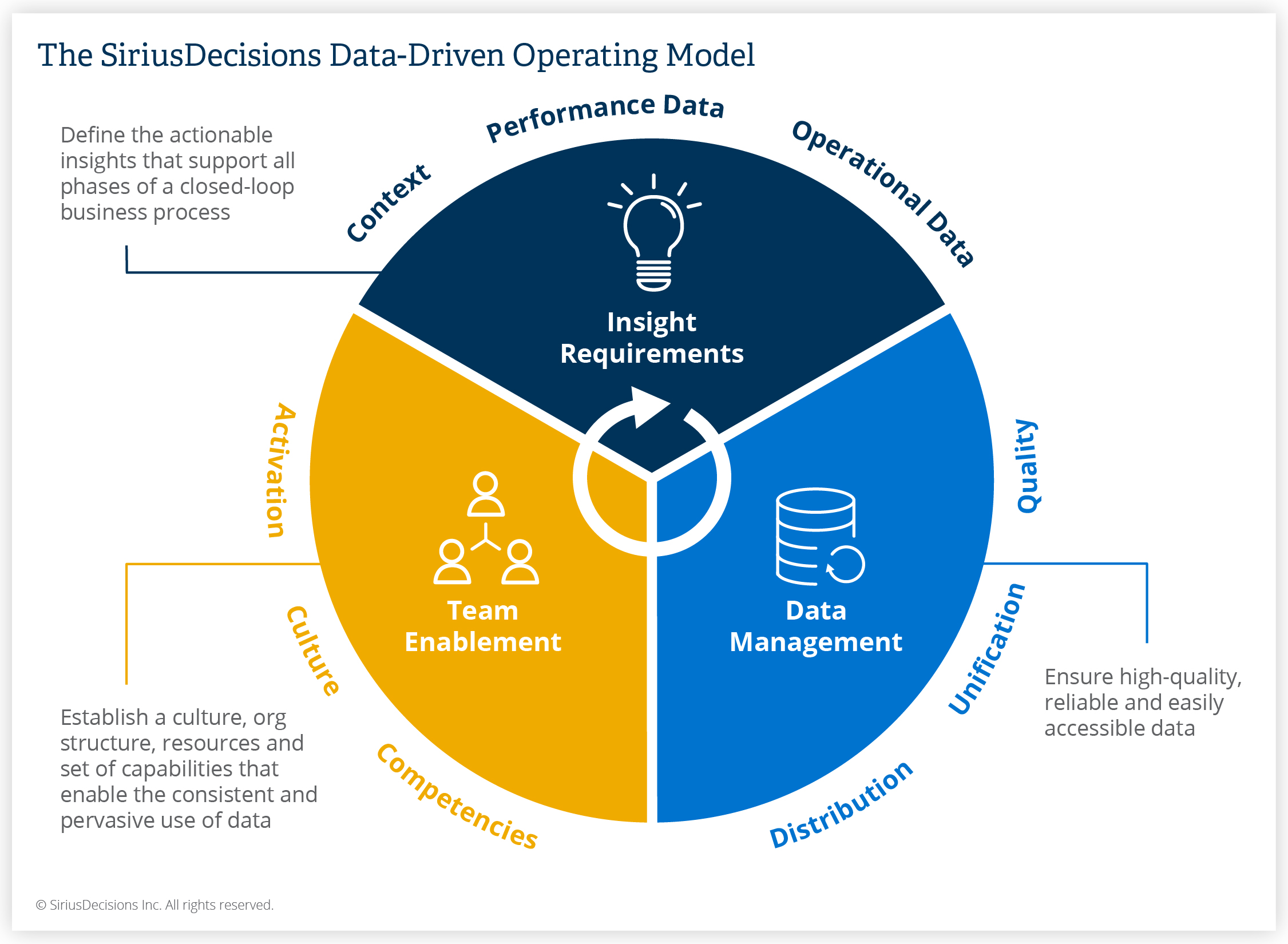Are You Prepared to Be Data-Driven?
- Many organizations talk about being data-driven, but few know what this concept really means
- A data-driven organization identifies the insights it needs data to inform, effectively manages that data, and empowers its team to use the data
- Conduct a proficiency assessment to drive capability improvements in insight requirements, data management, and team enablement
Many people’s jobs increasingly rely on the self-service availability of accurate, credible data people can use when they need it to perform their daily tasks. Modern organizations are taking steps to empower their staff to make fact-based decisions — and to no longer depend on untrusted data reports or gut instinct.
Though the importance of making data-driven decisions is frequently discussed, few organizations have a clear understanding of this concept and its implications for employees and organizational processes. Organizations must take the following steps to assess their current competence and ability to take the required actions to become data-driven:
- Definition. A data-driven organization identifies the insights it needs data to inform. It effectively manages that data and empowers its team to use it. The SiriusDecisions Data-Driven Operating Model describes nine elements in three categories. The insight requirements category requires the organization to determine what data it needs or what processes the data should support. The data management category helps the organization ensure that credible, high-quality data can be delivered in the right format to the right audience. The elements in the team enablement category apply to the teams that must define and monitor data processes (typically marketing operations) and the marketing teams that need to use data to drive campaigns and make decisions.
- Assessment. To understand current-state proficiency across the range of elements, the marketing operations team or an existing data governance group should take the lead in completing an assessment. Use SiriusDecisions’ Data-Driven Proficiency Assessment to rate the organization’s capability as poor, adequate, or optimized. This process will provide a view of current insight requirements by assessing the clarity of processes and defined data needs, a view of the organization’s confidence in its data management process to deliver quality data, and a view of the organization’s ability to enable teams to use and understand the data. This assessment defines a baseline for data-driven capability improvements.
- Improvement guidelines. Finally, organizations must prioritize areas for improvement using the findings of the assessment. If the assessment reveals poor capability in the insight requirements or data management elements of the Data-Driven Operating Model, the organization will find great value in the SiriusDecisions Data Strategy Implementation Process (see my blog post “Seven Steps to Data Confidence”).
At their peril, organizations often ignore the elements of team enablement: competencies, culture, and activation. Competencies refer to the skill levels of operational data teams and data consumers alike. Culture refers to the extent to which the organization drives, supports, exhibits, and measures a data-driven mindset. Activation refers to the organization’s ability to retrieve required data and use it effectively to drive desired activity.
Becoming data-driven is an opportunity for the marketing data team to lead strategically, offering guidance and leadership in improving the overall team enablement capability. All team members work within the cultural environment the organization promotes. Determine the level of data competence required of all employees within each job role. Prescribe policies that promote making decisions on the basis of insight rather than whoever’s voice is loudest. Finally, emphasize the importance of ensuring team members have the appropriate tools and motivation to alter actions as a result of the insight they’ve received.
I hope you can join me during my session at this year’s Summit next month, where I will be discussing the importance of being data-driven. If you would like to comment or know more, please contact me.

